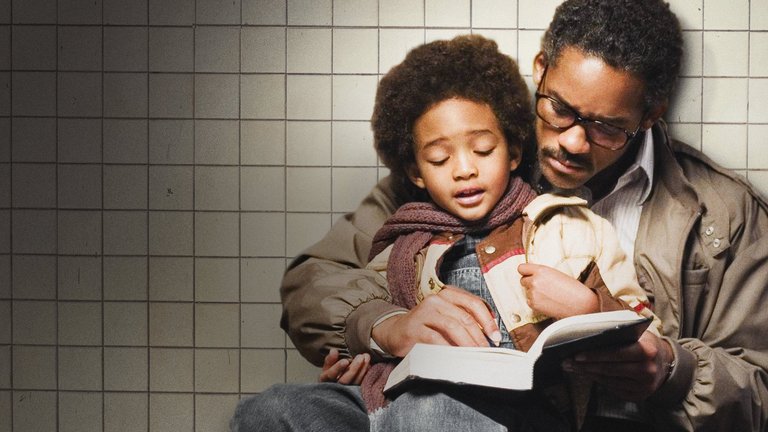Retro Film Review: The Pursuit of Happyness (2006)

In mid 2000s Hollywood has, particularly thanks to the George W. Bush in White House, sought to present itself as a kind of conscience and the moral compass fir America. Hollywood stars, actors, and producers competed to criticise the political and economic institutions of their country with increasing sharpness, portraying themselves as defenders of the disenfranchised and oppressed victims of a cruel and hypocritical capitalist system.
However, this represented sharp contrast to Clinton years when Hollywood had played a different tune and the USA was seen as the best of all possible worlds. It wasn’t difficult to predict how Hollywood would switch when Democrat enters White House.
One such film is The Pursuit of Happyness by Italian director Gabriele Muccino, based on the autobiographical book by Chris Gardner, a successful and wealthy African American businessman who was forced to live as a homeless person in San Francisco with his son before starting his career. The film, which depicts the true story of achieving the American Dream, was a significant success with American audiences at the end of last year and was nominated for an Oscar.
While many attribute the film's success to the stellar performances of Will Smith and his young son Jaden, it can also be explained by American audiences' fatigue with Hollywood leftism, or a desire for refreshing narratives that challenge the unwritten rules of "political correctness."
The Pursuit of Happyness, in its fundamental thesis—that the American Dream works and that an individual, regardless of race and background, can achieve wealth and success—represents an antithesis to Hollywood's limousine liberalism, which posits that the plight of the poor and oppressed can only be improved through government intervention. This antithesis can also be identified in subtle and "politically incorrect" details— the protagonist, as a single father, undermines the feminist dogma of maternal superiority; a large corporation, without hesitation, chooses a Black high school graduate over a multitude of white, educated candidates for a responsible position; instead of altruistic social services, the protagonist receives help at a crucial moment from a priest, and so on.
Viewers who are not overly concerned with the ideological subversiveness of The Pursuit of Happyness will not be overly thrilled, but neither will they be disappointed. The film lacks a villain, which is justified given that it is based on a true story unencumbered by Hollywood conventions. On the other hand, this absence results in a lack of strong dramatic tension, making the ending anticlimactic, and certain details—like the symbolic resolution of a Rubik's Cube—feel superfluous. Although somewhat lengthy and at times overly sentimental, The Pursuit of Happyness nonetheless represents a solidly crafted Hollywood product that, by all accounts, signals the path the American film industry is likely to take very soon.
RATING: 6/10 (++)
Blog in Croatian https://draxblog.com
Blog in English https://draxreview.wordpress.com/
InLeo blog https://inleo.io/@drax.leo
Hiveonboard: https://hiveonboard.com?ref=drax
Rising Star game: https://www.risingstargame.com?referrer=drax
1Inch: https://1inch.exchange/#/r/0x83823d8CCB74F828148258BB4457642124b1328e
BTC donations: 1EWxiMiP6iiG9rger3NuUSd6HByaxQWafG
ETH donations: 0xB305F144323b99e6f8b1d66f5D7DE78B498C32A7
BCH donations: qpvxw0jax79lhmvlgcldkzpqanf03r9cjv8y6gtmk9
Posted Using InLeo Alpha
En busca de la felicidad es una películas con un mensaje de motivación que invita a seguir adelante a pesar de las adversidades.
Saludos @drax